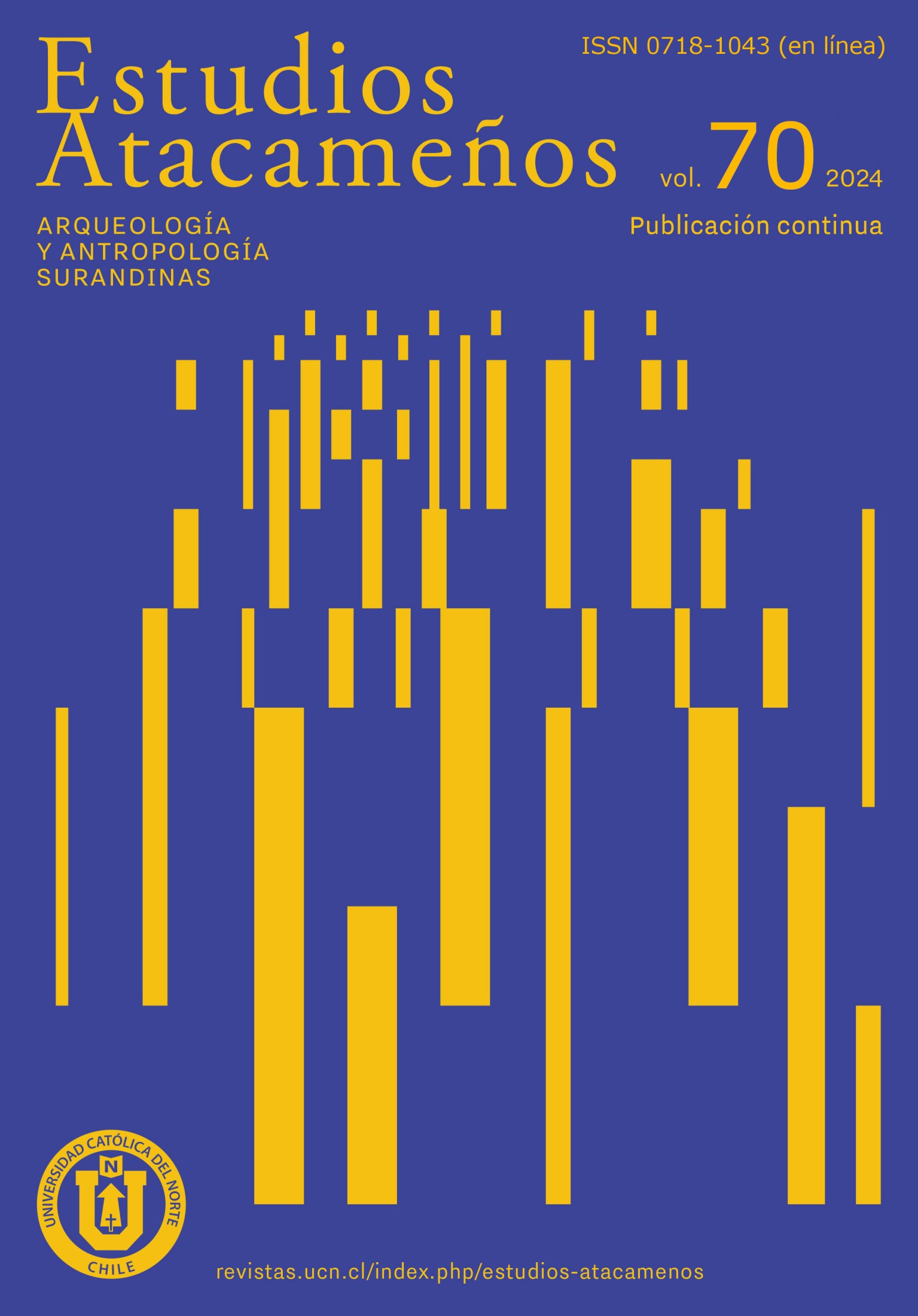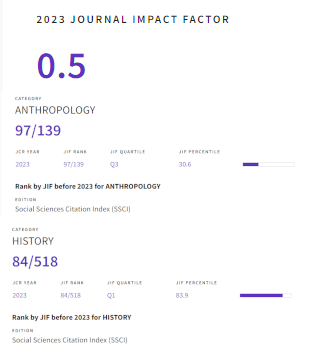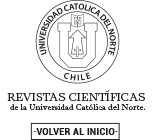Siempre relacionando
Reflexiones sobre algunos pasados y futuros de la antropología social
DOI:
https://doi.org/10.22199/issn.0718-1043-2024-0008Palabras clave:
relaciones, antropología social, perspectiva cambiante, punto ciegoResumen
Esta conferencia aborda parte de la historia pasada sobre el interés antropológico contemporáneo sobre las relaciones. Pone atención en algunos aspectos de la Escuela Británica de la antropología social, y uno de sus problemas omnipresentes. Para hacer esta presentación al menos parcialmente digerible, la autora construye su argumentación a la manera de una novela de detectives. De esta forma investigará El Caso de la Perspectiva cambiante y, como una trama dentro de ésta, El Caso del Punto Ciego.
Descargas
Referencias
Alexander, H. G. (Ed.). (1956). The Leibniz - Clarke correspondence. Manchester University.
Bacchiddu, G. (2019). Ritualizing the everyday: The dangerous imperative of hospital-ity in Apiao, Chiloé. Social Analysis, 63(2), 122-142. https://doi.org/10.3167/sa.2019.630207
Battaglia, D. (1990). On the bones of the serpent. Person, memory and mortality in Sabarl Island Society. Chicago University.
Bonnemère, P. (2018). Acting for others: Relational transformations in Papua New Guinea. HAU Books.
Candea, M. (2019). Comparison in anthropology: The impossible method. Cambridge University. https://doi.org/10.1017/9781108667609
Corsín Jiménez, A. (2013). An anthropological trompe l'oeil for a common world: An essay on the economy of knowledge. Berghahn. https://doi.org/10.3167/9780857459114
Corsín Jiménez, A. (2003). The form of the relation, or Anthropology's enchantment with the algebraic imagination [Unpublished manuscript]. University of Oxford. https://digital.csic.es/handle/10261/98307
Damon, F. H. (1980). The Kula and generalised exchange: Considering some uncon-sidered aspects of the elementary structures of kinship. Man, 15(2), 267-292. https://doi.org/10.2307/2801671
Dear, P. (2001). Revolutionizing the sciences: European knowledge and its ambitions, 1500-1700. Palgrave.
Descombes, V. (2014). The institutions of meaning: A defense of anthropological ho-lism (S. A. Schwartz, Trans.). Harvard University. https://doi.org/10.4159/harvard.9780674419971
Di Giminiani, P., & González Gálvez, M. (2018). Who owns the water? The relation as unfinished objectification in the Mapuche lived world. Anthropological Forum, 28(3), 199-216. https://doi.org/10.1080/00664677.2018.1495060
Dumont, L. (2006). Introduction to two theories of social anthropology: Descent groups and marriage alliance (R. Parkin, Trans.). Berghahn.
Fortes, M. (1969). Kinship and the social order: The legacy of Lewis Henry Morgan. Aldine Publishing Co.
González Gálvez, M., di Giminiani, P., & Bacchiddu, G. (2019). Theorizing relations in indigenous South America: An introduction. Social Analysis, 63(2), 1-23. https://doi.org/10.3167/sa.2019.630201
Israel, J. (2001). Radical enlightenment: Philosophy and the making of modernity 1650-1750. Oxford University.
Kapferer, B. (2010). Louis Dumont and a holist anthropology. In T. Otto y N. Bubandt (Eds.), Experiments in holism: Theory and practice in anthropology. Wiley-Blackwell. https://doi.org/10.1002/9781444324426.ch11
La Fontaine, J. (1985). Person and individual: Some anthropological reflections. In M. Carrithers, S. Collins y S. Lukes (Eds.), The category of the person: Anthropolo-gy, philosophy, history (pp. 123-140). Cambridge University.
Lagrou, E. (2019). Learning to see in Western Amazonia: How does form reveal rela-tion? Social Analysis, 63(2), 24-44. https://doi.org/10.3167/sa.2019.630202
LeRoy, J. (1979). The ceremonial pig kill of the South Kewa. Oceania, 49, 179-209. https://doi.org/10.1002/j.1834-4461.1979.tb01388.x
Myhre, K. C. (Ed.) (2016a) Cutting and connecting: 'Afrinesian' perspectives on net-works, relationality and exchange. Berghahn. https://doi.org/10.1515/9781785332647
Myhre, K. (2016b). Membering and dismembering; The poetry and relationality of animals bodies in Kilimanjaro. In K. C. Myhre (Ed.), Cutting and connecting: 'Afrinesian' perspectives on networks, relationality, and exchange (pp. 114-131). Berghahn. https://doi.org/10.1515/9781785332647-007
Ortega y Gasset, J. (1992). La idea de principio en Leibniz. Revista de Occidente en Alizande.
Peirce, C. (1955). Philosophical writings of Peirce. Dover.
Porter, R. (2000). Enlightenment: Britain and the creation of the modern world. Allen Lane.
Radcliffe-Brown, A. R. (1952). Structure and function in primitive society. Cohen and West.
Rio, K. (2005). Discussions around a sand-drawing: Creations of agency and society in Melanesia. Journal of the Royal Anthropological Institute, 11(3), 401-423. https://doi.org/10.1111/j.1467-9655.2005.00243.x
Rio, K. (2007a). The power of perspective: Social ontology and agency on Ambrym Island, Vanuatu. Berghahn. https://doi.org/10.2307/j.ctv287sdxx
Rio, K. (2007b). Denying the gift: Aspects of ceremonial exchange and sacrifice on Ambrym Island, Vanuatu. Anthropological Theory, 7(4), 449-470. https://doi.org/10.1177/1463499607083429
Smith, D. R. (2023). The fall and rise of Britain's upper class: houses, kinship and cap-ital since 1945, Manchester University.
Strathern, M. (1988). The Gender of the Gift: Problems with women and problems with society in Melanesia. Berkeley and California University. https://doi.org/10.1525/california/9780520064232.001.0001
Strathern, M. (2020a). Relations: An anthropological account. Duke University. https://doi.org/10.1515/9781478009344
Strathern, M. (2020b). Reflecting back. Maloca, 3, 1-9. https://doi.org/m9j6
Taylor, A. (22 de noviembre 2014). Review of 'The Neruda case'Roberto Ampuero. The Spectator. https://bit.ly/3SiOTTO
Viveiros de Castro, E. (2014). Cannibal metaphysics for a post-structural anthropolo-gy (P. Skafish, Trans.). Univocal.
Wagner, R. (1967). The curse of Souw: Principles of Daribi clan definition and alli-ance. Chicago University.
Descargas
Publicado
Número
Sección
Licencia
Derechos de autor 2024 Marilyn Strathern

Esta obra está bajo una licencia internacional Creative Commons Atribución 4.0.
Todos los trabajos publicados en Revista Estudios Atacameños (eISSN:0718-1043) están sujetos a una licencia Creative Commons Reconocimiento 4.0 Internacional
Los autores continúan como propietarios de sus trabajos, y pueden volver a publicar sus artículos en otro medio sin tener que solicitar autorización, siempre y cuando indiquen que el trabajo fue publicado originariamente en Revista Estudios Atacameños (eISSN:0718-1043).












